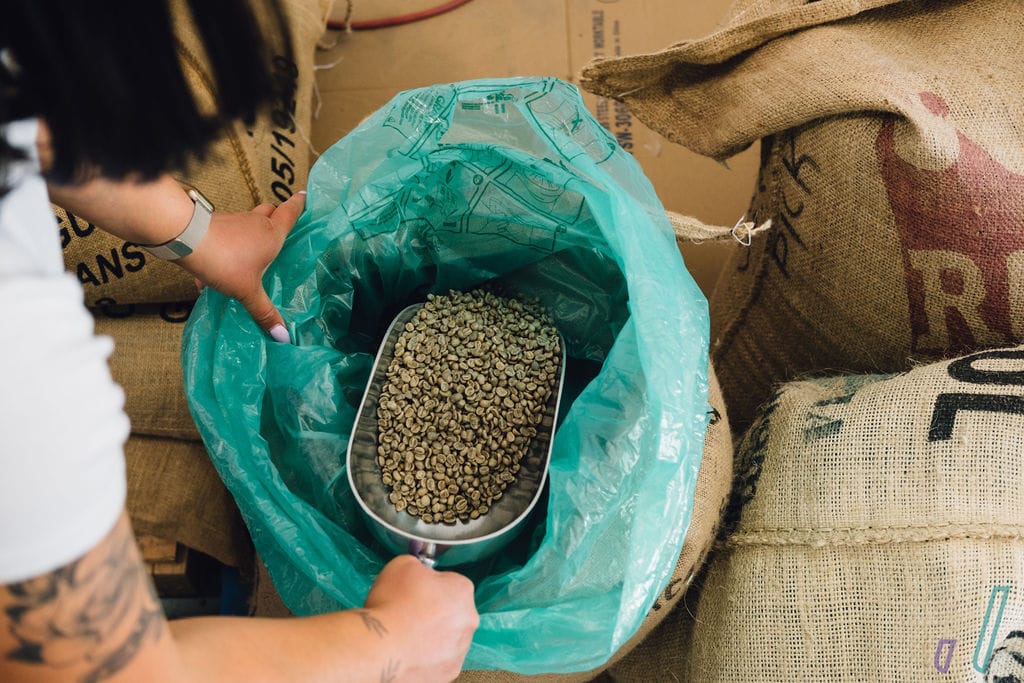Departing coffee: The skills you carry with you
What are the transferrable skills that coffee people carry over when they leave the industry?


Departing coffee: The skills you carry with you
When someone leaves the coffee industry, and this is brought up in conversation, often, you’ll hear, “Congratulations!” If you’ve been an hourly coffee worker, the draw of a salaried position with full benefits is quite enticing. What you gain from working in this industry with a rather unique sense of community, however you interpret that, is a lot of transferrable skills.
That whole “hard skill” vs “soft skill” thing has never quite sat right with me. Instead, I think it’s now framed as technical proficiency. Because you can teach someone how to program. You can go to a trade school to learn how to be a plumber. What is more difficult to teach is how to care for others, how to be a respected trainer, or how to handle an angry customer.
You can be the best plumber ever, technical skills-wise. But if you have a shitty attitude and are disrespectful to clients, how far will you really get in your career? People don’t want to work with assholes.

Coffee taught me to treat people like people, Kathleen Spicer told me. She explains, “About attending an event like SCA, I think that obviously, you want there to be professionalism—and you don't want people to be acting inappropriately— but there's a level of like, ‘Oh, we are humans, and we can connect on the level of being human.’” She describes it as having more “openness” to different human experiences. From being a barista to a sales rep, this skill was one she carried through her coffee career and into other fields.
Kathleen has left the industry twice. The first time, she went from a sales rep with a coffee roaster to a sales development rep at an email marketing company. The second time was for an account management position at another tech company. In both instances, her people and sales skills directly transferred over. As a barista, she learned how to think and act quickly. “Baristas see a lot of bad behavior from fully grown adults,” she says. “There's nothing that can replace having to deal with a customer who's getting mad at you and learning how to handle that.” She recalls an instance before she left her last job, where a customer was very mad at her and the company, but they were able to have a good conversation and connect on a human level.
“I've been training people in coffee for ten years, and I can train anybody how to make coffee, but I can't teach you how to care for other people,” explains Jon Bailey. When he did his short stint in the corporate world, he took headshots and marketing content for real estate agents. He read body language and recognized when people felt uncomfortable—both skills that working as a barista taught him.
His experience as a barista, and as a manager who didn’t feel like he was being recognized for his work, helped shape how he runs the cafe as a co-owner. He takes on the dirty tasks and the harder stuff but still works five bar shifts a week. Jon says, “There's very rarely anything that I miss as far as if there's a problem with them, or they're upset about this or that.”

It is easy to see when someone has never worked in a customer service role. It shows up in how they treat a service worker. At Expo, the industry trade show in April, it was when the booth staff ignored people entering their booth. Congratulations are certainly in order if you want to leave coffee. If the industry didn’t treat you well or you had enough of your boss’ poor managing skills, I get it. Fifty-seven percent of people leave jobs because of their managers. But I also think this industry attrition is because there isn’t a clear path forward and upward.
I spoke to Eric Grimm, founder of the newly formed The Coffee Human Resource, for their advice on mapping a career path in coffee. They say, “If you’re part of a larger company, participate in any offerings of meeting and community building that help you connect with more people who are interested in coffee as a career. Read everything.” They named Sprudge (disclosure, I’m an editor-at-large there) and Standart for culture/trends, and Fresh Cup and Daily Coffee News for business. They continue, “Once you’re immersed, figure out what’s missing in the industry. Carving out a niche and becoming an expert will position you as somebody others will want to work with to grow their businesses.” For the record, this is also the method I used to position myself as a coffee marketing expert (which I let go of earlier this year).
I asked Eric about what employers could do better, because professional development shouldn’t solely rest on the employees. “Helping employees gradually build a more diverse skillset that can help grow your business is the best thing you can do to create and maintain a mutually beneficial community and decrease unnecessary turnover,” they say, referring to growing companies who hire from outside the industry. “The presence of the former Starbucks C-suite or Harvard MBA might be doing more to sow distrust and confusion within your workforce rather than increasing your sales and efficiency.”

But if you want out, there are ways to enter a new industry that won’t make it seem like you’re starting from scratch.
Byron Gomez was a barista, roaster, and business owner before he began teaching an esports and video game development curriculum at community centers. About why he left the industry, he says, “I loved it very much and didn't always feel like that love was reciprocated.” He had been in burnout since 2016, and the pandemic also led to a layoff. Rising costs of business eventually made operating it unsustainable. “By chance, I ended up in a Microsoft program that was held here locally,” he explains. For three years, he learned skills in the program, and someone there referred him to his current teaching job.
Coffee taught Byron a lot about being a professional and the importance of fundamentals. “Learning how to manage a team, how to put together a team, how to work towards a project, and how to accomplish goal,” he shares. “These are all things that I find to be very valuable and that I think people don't realize that your everyday barista has to do this.”
In addition, because he worked in New Orleans, where many tourists from around the world go to visit, he has served coffee to every type of human. “I had a lot of experience talking to people that don't speak English,” he says. “Being able to navigate that in several different languages, try to get them what they want and allow them to feel comfortable and welcome and included” was a skill that carries into his new job.
During his job search, he found that the robots didn’t understand his coffee resume and, eventually, left it out entirely. Once he reached the interview stage, he did well and explained how his coffee jobs gave him skills that would help him excel in the new position.
Eric shares how you can frame barista skills on a resume, naming technical proficiency, problem-solving, and people skills as the top three transferrable ones (there are obviously more). They explain, “That you’re able to efficiently and swiftly prepare any drink with a complicated process on a menu of 10+ offerings demonstrates that you are up to the task of learning many different processes and putting them into consistent practice.” With the task of dialing in espresso, you take multiple factors like origin, roast date, and climate into consideration, which will “translate well to project management and any industry where creativity is at the forefront.”

The departure was a planned, slow transition for Melanie Leeson. After working in the industry for 15 years in multiple retail, roastery, sourcing, and sales roles, she needed a change and to feel more inspired about her work again. She decided to return to the mental health field and is currently an operations manager at a mental health clinic. Melanie explains, “My bachelor’s degree is in Psychology, and the recent developments in cultural understanding and acceptance about mental health issues, along with a move toward more holistic interventions in mental healthcare, has been very exciting and inspiring to witness.”
Like the others, she learned a lot of people and communication skills that helped her navigate the complexity of the mental health field. “The experiences I had working and negotiating in many different countries while working in the coffee industry has helped make me a more open, flexible, and resilient person,” she says. “I was able to quite easily adapt to my current position at a mental health clinic because of my professional experiences in starting up and developing coffee businesses.”
She has advice for those who are looking to leave, noting that the coffee industry is a bubble at the highest levels: “That doesn't mean you will easily have access to other high-level positions in other fields. It can be a grind to make your way out of coffee, so you'll more than likely need a lot of patience, great networking skills, and a clear vision for what you're going after since it'll most likely take a lot of time and effort to get there.”
Byron and Melanie weren’t the only ones returning to previous interests. Veronica Pearl, founder and Chief Glitter Officer of Glitter Cat, was in coffee for 12 years in various roles and is now a full-time graduate student in Traditional Chinese Medicine (TCM). When she realized that she was doing the nonprofit work more because that’s what others expected of her, and her health (in all aspects) was suffering, that’s when she knew she needed to step back.
“Working in coffee solidified the kind of broad-stroke work I wanted to do: community building and increasing access,” she says. “My dream in TCM is to be a part of a sliding-scale clinic to provide free and low-cost care, especially to QT&POC communities.” The skills she learned while running a non-profit are helping her plan out her future in TCM and the future clinic.
As a former barista, she says, “There is no replacing customer service skills learned in a cafe. These hard skills transfer everywhere, from redirecting a professor constantly misgendering a classmate, to biting my tongue when someone says something out of line and it’s not the right time for an educational moment.” It took a while for her to sit with who she was and find a local, supportive community, but she is happy with her decision to move away from coffee. “I am feeling really fulfilled investing in myself through education and finding friendship through other avenues like roller skating or community organizations.”

Moving out of the coffee industry is a tough decision to make, but you will absolutely carry transferrable skills to your next position. It’s all about how you frame the work.
This is the second set of articles addressing movement in and out of the industry. Here is the before coffee article. Are you a new reader or want to know what's going on? This is season 2 of tanjennts: New Directions. If you enjoyed reading this and would like to support future work like this, paid upgrades and comps are available. Forwarding and sharing are also appreciated.


etc.
article links, personal updates, and a plant feature




